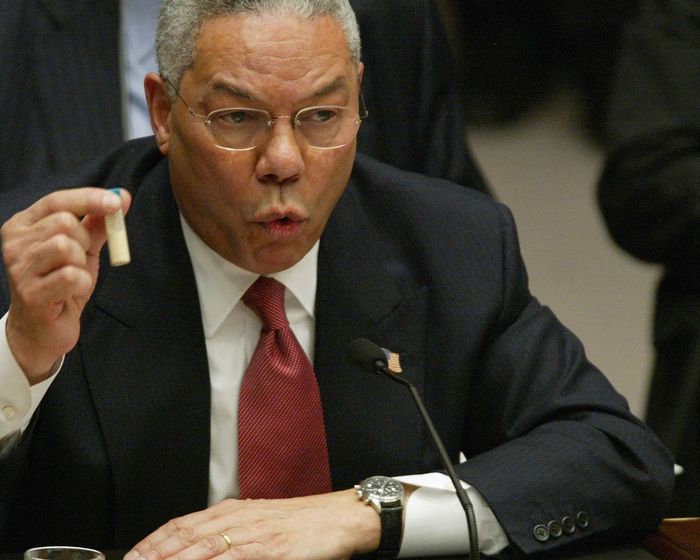The Complexity of Colin Powell

I add to the Colin Powell Discourse at 1945:
To declare a public figure “complicated” in the post-mortem has become a way of avoiding the most dreadful aspects of that person’s career. When Henry Kissinger finally goes the way of all flesh, a wave of obituaries will undoubtedly try to wash away his legacy in Bengal, Chile, and Cambodia with the word “complicated,” an effort that will do a disservice to our understanding of the man’s impact on the world. But Colin Powell was genuinely complicated. Powell led a singular career in the United States national security bureaucracy, becoming well-regarded by almost the whole of government despite a series of dreadful mistakes that will forever characterize his reputation.
I don’t disagree with much of anything in Erik’s obit, although the My Lai stuff is more of an institutional issue than something that can be hung on Powell. And as the above suggests I agree with Paul that the term “complicated” can be used as an excuse to ignore the warts. But even when we accept that the UN speech is the moment he’ll be most remembered for, Powell’s career offers an enormous body of work to take in and engage with. A lot of the non-UN stuff is also bad, including most notably the decision to fight Clinton on gays in the military. But the story of the first Black NSA, the first Black CJCS, and the first Black Secretary of State was always going to be one that involved a lot of compromise. The post-Bush evolution is also interesting on its own terms, as it is part of a big but as of yet understudied story about how the college-educated public employees that make up the officer corps of the US military are slowing coming to resemble the rest of the country’s college-educated public employees in political terms.
I don’t get into this in the column, but I feel like most people are making a category error with respect to the UN speech. It is true that Powell went forward with sketchy intel and that he was aware he was moving forward with sketchy intel; excuses that he didn’t understand the intel was sketchy are absurd given his position and his professional experience. The problem with the speech is that Colin Powell was almost uniquely situation to understand that invading Iraq was a stupid idea whether or not Iraq had chemical weapons. The Powell Doctrine is basically about not fighting wars like Iraq, and his recent statements on dialing down the temperature on both Iran and North Korea are an indication that he could appropriately frame Iraq in national security terms. It doesn’t absolve Powell to say that in 2002 he probably still understood his role in military rather than civilian terms. When a general is ordered to support an idiotic war and resigns, it comes dangerously close to mutiny or even a military coup. Secretaries of State can and do resign when they’re asked to do terrible things, and Powell should have resigned rather than go through with the Speech and the rest of his duties that facilitated the war.


